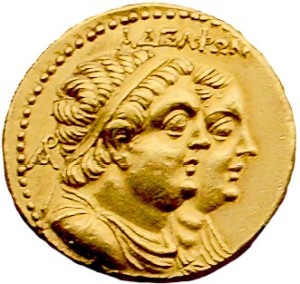Hellenism 332-167, Teddy Kollek and Moshe Pearlman, Jerusalem: Sacred City of Mankind, Steimatzky Ltd., Jerusalem, 1991.
 There are almost no written records enabling us to reconstruct the history of Jerusalem for the next hundred years, up to the fall of the Persian Empire before the youthful wonder king of Macedonia, Alexander the Great, in the year 332 BC. What is known however is that Jerusalem was now the capital of a considerably truncated Judah, the Jewish region within the larger Persian satrapy (colonial province) called Abar-Naharah (Aramaic for “beyond the river”). It appears to have experienced rather less turbulence than the previous years, and from the prophet Joel we get a picture at the beginning of the fourth century of a pastoral and God-fearing people. Beyond the city walls, Jewish farmers tend their olive groves, vineyards and cornfields. Above the Temple Mount rises the smoke of sacrifice. And at the great annual festivals come the murmur of the throngs at prayer in the Temple courts and the shout of their responses.
There are almost no written records enabling us to reconstruct the history of Jerusalem for the next hundred years, up to the fall of the Persian Empire before the youthful wonder king of Macedonia, Alexander the Great, in the year 332 BC. What is known however is that Jerusalem was now the capital of a considerably truncated Judah, the Jewish region within the larger Persian satrapy (colonial province) called Abar-Naharah (Aramaic for “beyond the river”). It appears to have experienced rather less turbulence than the previous years, and from the prophet Joel we get a picture at the beginning of the fourth century of a pastoral and God-fearing people. Beyond the city walls, Jewish farmers tend their olive groves, vineyards and cornfields. Above the Temple Mount rises the smoke of sacrifice. And at the great annual festivals come the murmur of the throngs at prayer in the Temple courts and the shout of their responses.
From the history of the area we know that at this time the influences of the Greeks, great seafarers and traders, was making itself felt in the Middle East, and Judah could not have been immune. This Hellenistic influence was given wings by the phenomenal military successes of Alexander, who had conquered western Asia, including India, before he died in 323 BC at the age of thirty-two.
Alexander left Jerusalem untouched, but with his death came the disintegration of his newly-won empire, his generals quarrelling among themselves. Two of them vied with each other for the control of, among other areas, the land of Judah. The two were Ptolemy, who had seized Egypt and set up his capital in newly established Alexandria, and Seleucus, who after some years had become master in the north, with capitals in Antioch in Syria and Seleucia in Babylonia. After a series of battles fought between former comrades-in-arms, Ptolemy won, and for the next century Jerusalem came under the authority of his dynasty.



